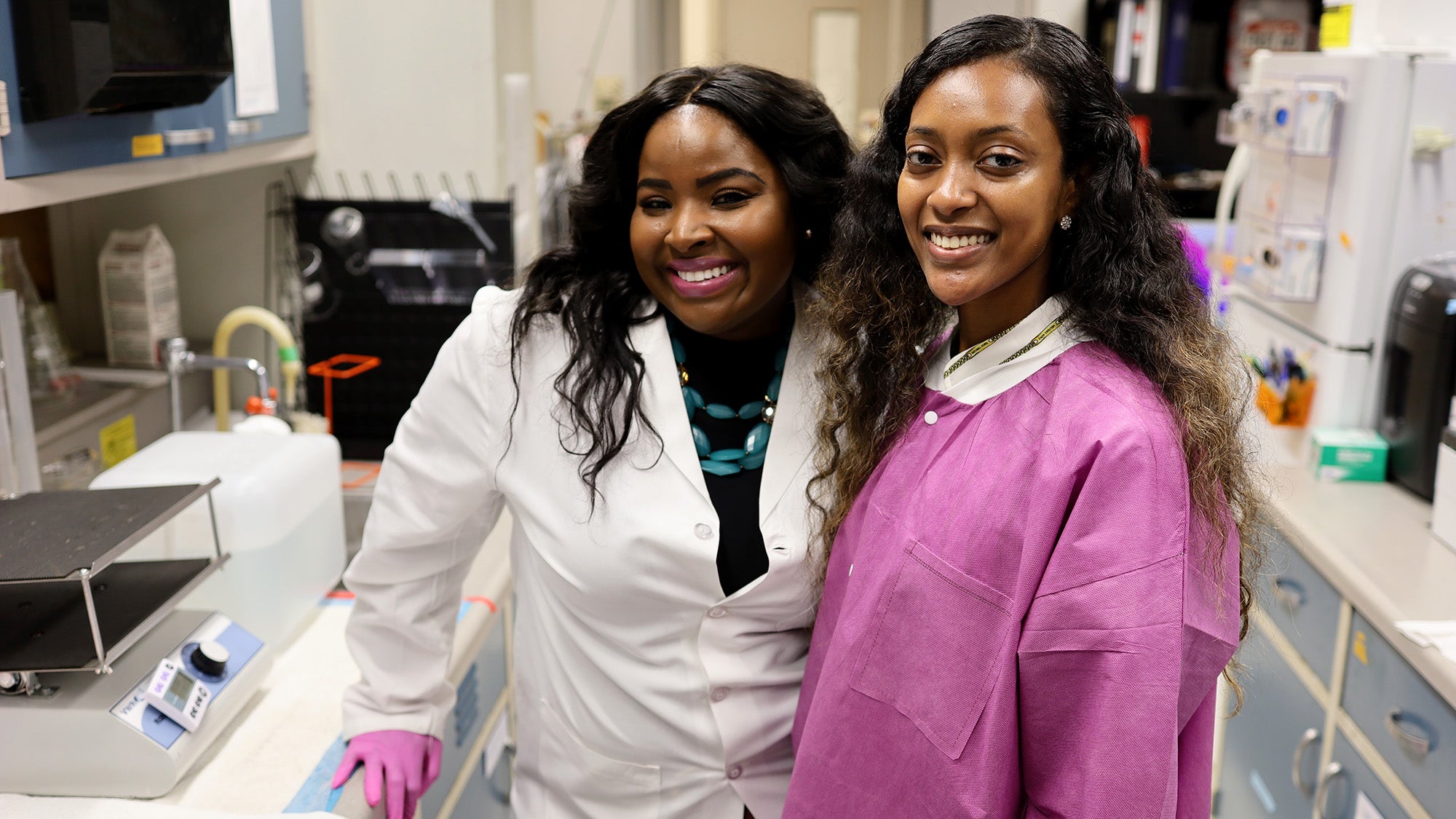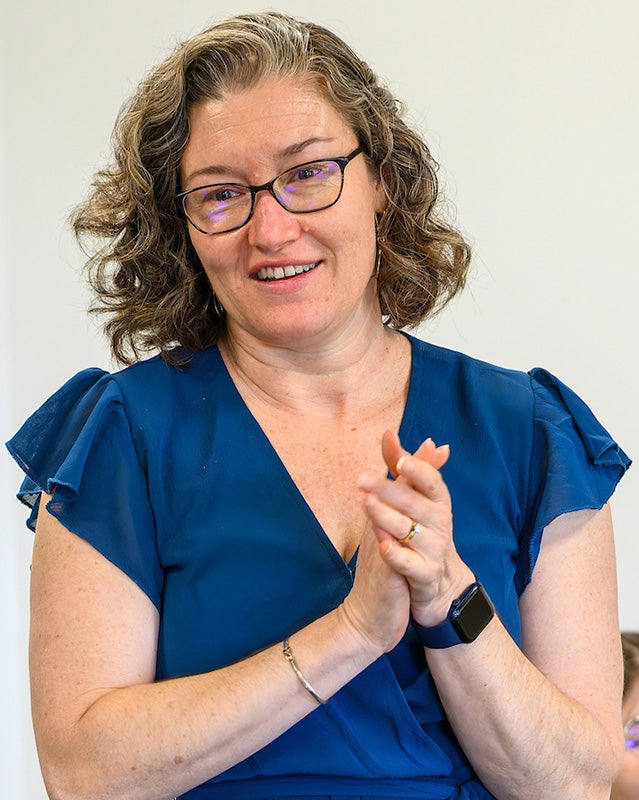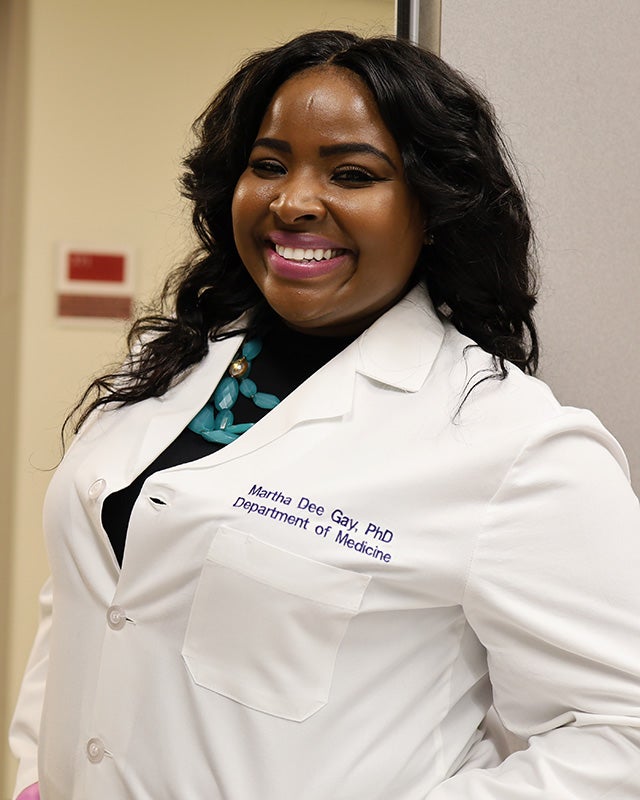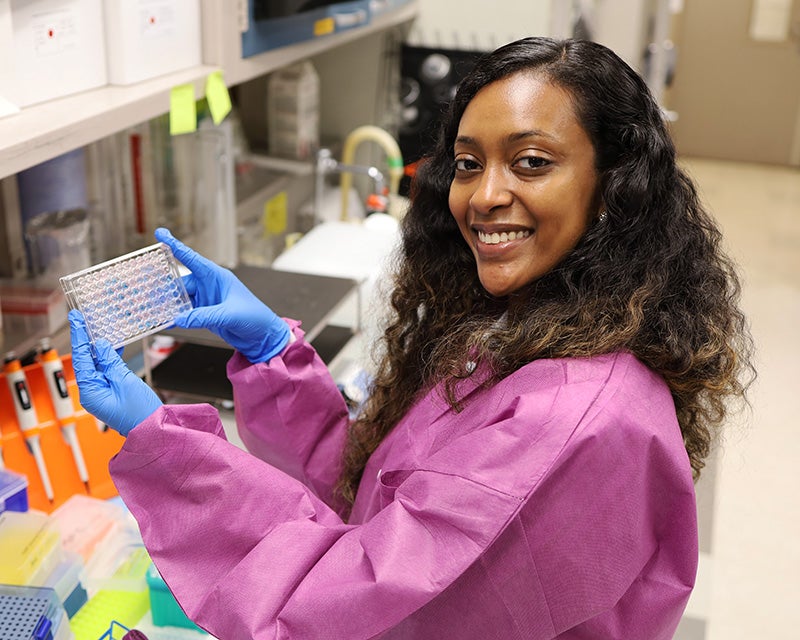Competitive Cancer Research Internship Program Offers Rewarding Experiences for Undergraduates

Posted in Lombardi Stories | Tagged community outreach, Diversity in Cancer Research Undergraduate Internship Program, populations in research, student mentoring, student research
(September 6, 2024) — Since 2021, the Diversity in Cancer Research Undergraduate Internship Program at Georgetown’s Lombardi Comprehensive Cancer Center has brought together undergraduate students to work side by side with Georgetown scientists and learn about how to become scientists themselves.

Sponsored by the American Cancer Society, Georgetown University and Kathryn Lindquist, the program’s 2024 class was the largest to date, with 10 rising sophomores, juniors, and seniors from colleges and universities across the country participating in the 10-week full-time program, which also includes workshops, seminars, meetings, mentoring and career development events.
“For those 10 spots, we had over 650 complete applications,” said Rebecca B. Riggins, PhD, associate professor and associate director of education and training at Georgetown Lombardi. “We get applications from everywhere.”
“The program affords students the opportunity to get a really broad view of what cancer research is,” Riggins added. “The different mentors and projects really run the whole spread, from basic research in the lab to population science, community-based participatory research, public health and global health, and I think that’s a real strength of the program.”
Matching Interns and Mentors
Connecting interns with working scientists who can help them think more concretely about their career paths is an important part of the internship program. In addition to individual mentors, the interns met “near-peer” mentors who have recently been in positions similar to the interns.

“I’ll have a panel discussion with med students and PhD students,” Riggins said. “I’ll feed them, I’ll introduce them, and then I’ll leave so they can talk about what it’s really like to do this after college.”
Pairing interns with individual mentors who will both challenge and inspire is a responsibility that Riggins takes seriously.
“Typically, the mentors are people that I’ve known to have good mentoring philosophies and be successful in mentoring underrepresented students, people who are good at developing strong projects and encouraging folks to do them,” she said.
“I often pick mentors who have done some sort of formal mentor training, because they’ve been exposed to best practices,” Riggins added. “Really, it has a lot to do with mentoring style and philosophy — setting high expectations and helping people get there.”
Giving Back As a Mentor
An assistant professor in the Department of Medicine at Georgetown University School of Medicine, a member of Georgetown Lombardi and an NIH K01 recipient, Martha D. Gay, PhD, has benefited from mentoring relationships in her career. “I have taken away from all of my mentors, and they definitely have made me a better, stronger, more confident scientist,” she said. “They all had something that I took away that made me better.”
Those experiences prompted Gay to mentor an intern from the Diversity in Cancer Research Undergraduate Internship Program in her lab. “I’ve mentored before, but I’ve always been a co-mentor,” said Gay, who researches metabolic dysfunction-associated liver disease. “It’s time for me to give back independently.”

Gay mentored Saron Bekabil, a senior majoring in psychology at Howard University who is interested in going to medical school.
“This summer, I was able to enhance my wet-lab skills in understanding how to make a western blot, how to take care of cells under the hood and how to dissect mice,” Bekabil said. “I had a wonderful experience being able to compile my research that is focused on comparing sex differences in mice based on protein expression and tumor size.”
Based on Bekabil’s interests, Gay connected her with a colleague focused on clinical neuroscience research, an introduction that may lead to a spring research opportunity for Bekabil.
“She is just a joy to work with,” Gay said about Bekabil. “She is eager to learn and she wants to expand her horizons.”
Life Lessons in the Lab
As a mentor, Gay hoped to impart life lessons that she has learned as a scientist.
“Everyone in life is going to come across a problem but you have to come across a solution as well,” she said. “You might not see the results that you want but you keep pressing on and you come up with a strategy for success.”
Those messages resonated with Bekabil.
“Dr. Martha Gay is one of the most impactful mentors I have ever had,” she said. “She always has a positive attitude in the lab and has taught me the importance of being able to pay attention to detail and staying patient even when the experiment doesn’t go the way you want it to.”
Kat Zambon
GUMC Communications
